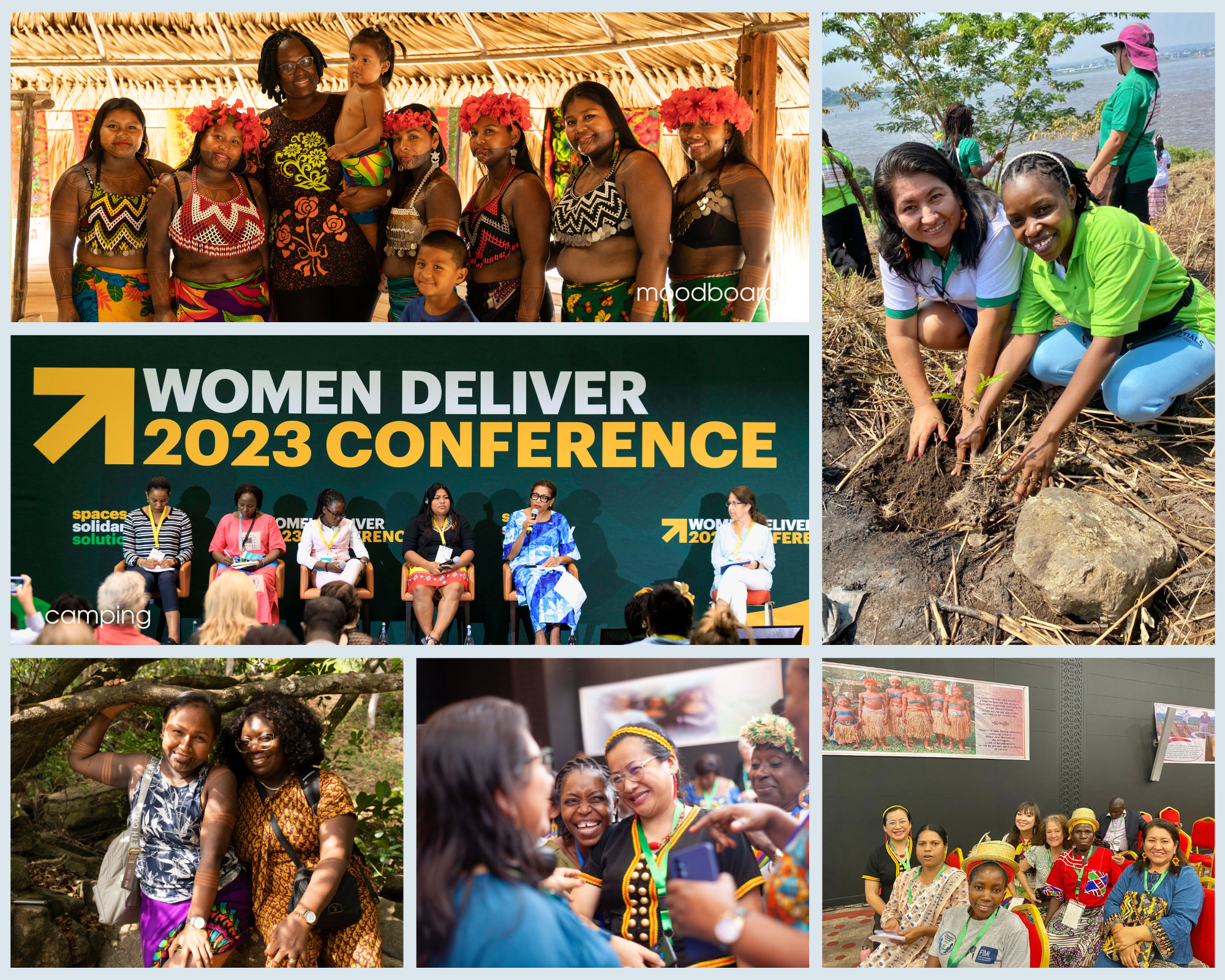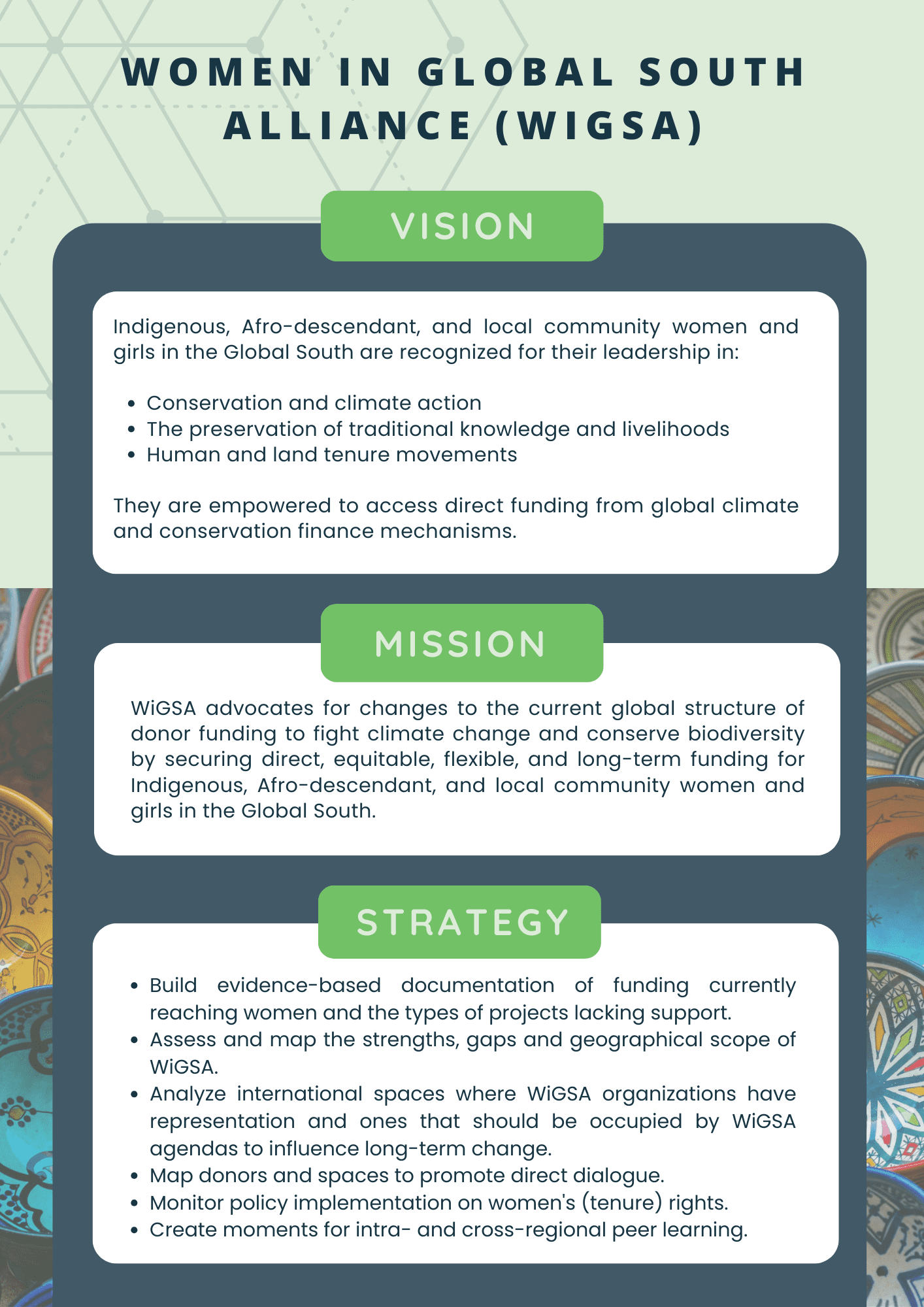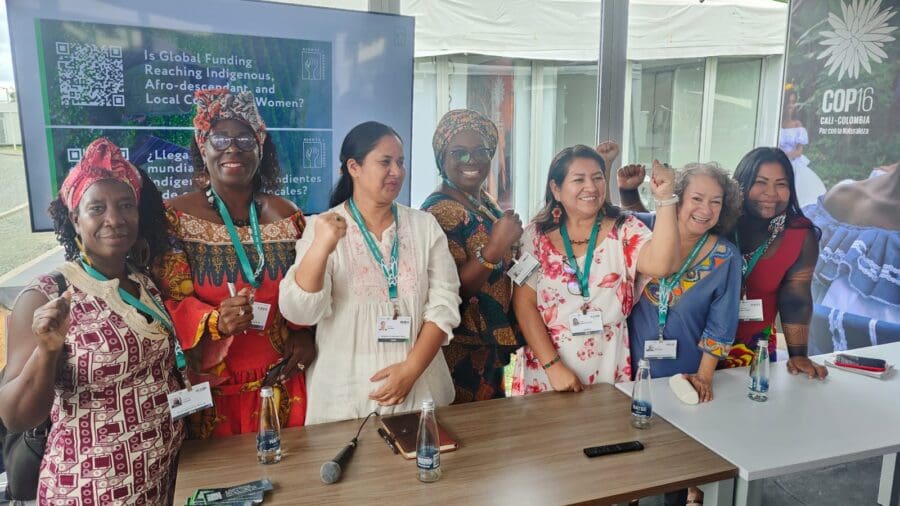Women in Global South Alliance for tenure and climate (WiGSA)
READ THE CALL TO ACTIONAt CoP27 in Sharm-El-Sheikh, Egypt, women’s organizations from Asia, Africa, and Latin America launched a new advocacy network called the Women in Global South Alliance for tenure and climate (WiGSA). It is an alliance of women’s organizations, groups, and associations in the Global South working to scale up direct climate finance for Indigenous, Afro-descendant, and local community women and girls.
Background
Over the last three years, RRI’s Gender Justice Program strategy on cross-regional peer learning mobilized more than 75 Indigenous, Afro-descendant, and local community grassroots women’s organizations and networks from Africa, Asia, and Latin America. The cross-regional exchanges became unique spaces for identifying ongoing local efforts to advance systemic changes regarding women’s tenure rights. This strategy had two significant results: i) the creation of a new advocacy tool called Our Call to Action; and ii) the formation of a Global South Alliance between Indigenous, Afro-descendant, and local community women.
Our Call to Action highlights the need to secure direct access to funding for grassroots women’s groups and organizations. The Call describes the type of strategies women on the ground are developing with little financial support and provides recommendations to donors, policymakers, and government on how to make funding more flexible and accessible to women and girls in the Global South. Recommendations include allocating dedicated funds to securing women’s land, forest, and water tenure rights; providing sustained financial support to ensure strategic leadership and participation of women and girls in decision-making processes at all institutional levels; and more. The Call is currently endorsed by 42 organizations globally representing millions of Indigenous Peoples, Afro-descendant Peoples, and local communities.
WiGSA was formed to enhance women’s strategic advocacy at national and international levels focusing on influencing government, donors, and the international community to increase and secure direct climate finance for Indigenous, Afro-decendant, and local community women’s rights agendas.

What makes WiGSA unique?
- WiGSA is unique in its mission because it addresses a historical gap in international commitments to directly support women’s roles in achieving global climate and conservation goals and securing communities’ land and resource rights.
- The Alliance advocates for the incorporation of a gender-inclusive lens to existing and emerging global funding architecture and programming and to scale up funding for grassroots women in Africa, Asia and Latin America.
- WiGSA brings together voices, views, knowledge, and the diversity of women’s rights agendas and their strategies to make systemic changes at local, national and international levels.
Criteria for joining WiGSA
1. National or sub-national grassroots women’s organization, group, or association representing Indigenous Peoples, Afro-descendant Peoples, and/or local communities
- For women’s groups or associations associated with a mixed organization, the group of women that will participate in WiGSA must be self-defined and recognized by the organization. This identified body must have decision-making authority within their larger organization and have authority and decision-making power on behalf of their organization.
- These can be formal or informal groups (i.e., a self-defined group within a larger organization) and the names of delegated WiGSA members within a mixed organization should be put in writing by the organization’s director.
2. Regional Indigenous, Afro-descendant, and/or local community women’s network, association, or platform
- For women’s groups or associations associated with a mixed organization, the group of women that will participate in WiGSA must be self-defined and recognized by the organization. This identified body must have decision-making authority within their larger organization and have authority and decision-making power on behalf of their organization.
- These can be formal or informal groups (i.e., a self-defined group within a larger organization) and the names of delegated WiGSA members within a mixed organization should be put in writing by the organization’s director.
- Member organizations of regional networks are not automatically members of WiGSA, but can apply under other criteria and should be approved by WiGSA.
WiGSA and the CBD COP16
At the Biodiversity COP16 in October 2024, RRI and WiGSA hosted a side event titled, “Women’s Voices on Rights-based Conservation: The Role of Indigenous, Afro-descendant, and Pastoralist Women in Protecting the World’s Biodiversity.” The event aimed to address the crucial role that Indigenous, Afro-descendant, local, and pastoralist women play in conserving natural resources and leading climate change action. We presented the strategies that WiGSA is developing to i) respond to the dual biodiversity and climate crises; ii) transform the structural gender-based discrimination and exclusion that renders women’s leadership invisible; and iii) shine a light on the inequalities women experience that limits their right to participate in decision-making spaces.
RRI and WiGSA also launched a new brief on Is global funding reaching Indigenous, Afro-descendant, and Local community Women? This brief aims to identify how climate change and conservation funding is reaching Indigenous, Afro-descendant, and local community women on the ground and whether this funding responds to their rights-based agendas. The event was a huge success, with media articles appearing in The Guardian, Mongabay, Delfino, Context News, El Tiempo, Tehelka, and El Espectador alongside posts on social media from donors and allies.

Resources
- New brief on Is Global Funding Reaching Indigenous, Afro-descendant, and Local Community Women?
- Read Our Call to Action in English, French, Spanish, Portuguese, Bahasa Indonesia or Hindi
- Press Release from CoP27 in English, French or Spanish
- This blog post summarizing the outcomes of WiGSA’s first strategic meeting held in March 2023
- This blog post summarizing WiGSA’s 2024 strategic meeting and strategic roadmap
Impact Stories
- Governments and Donors Must Listen to Indigenous Women and Girls to Save the Planet
- How Local and Ethnic Women are Transforming Their Economies in Latin America
- Can Liberia’s Land Rights Law Improve Community Women’s Livelihoods?
- In Nepal, Indigenous Women Generate Green Jobs Through Lime Cultivation
- In Nayagarh, India, Community Women Get Long-due Recognition for Protecting Their Forests
For more information on WiGSA, contact Omaira Bolaños.
WiGSA in Action
WiGSA in Action
WiGSA in Action
WiGSA in Action
WiGSA in Action
WiGSA in Action
WiGSA in Action

